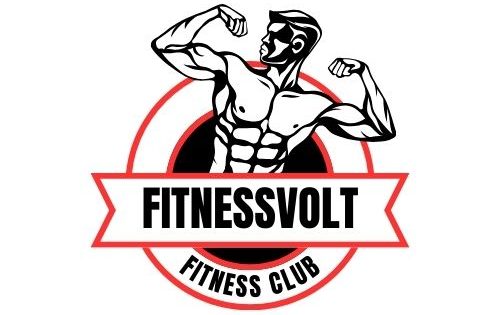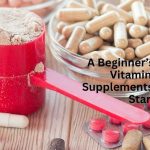Over the years, daily supplements have become more and more popular with folks looking to improve their overall health and well-being. The increasing assortment of choices available, ranging from multivitamins to targeted nutrient boosters is why most of us have a medicine box filled with multi-vitamin(multi-mineral) tablets in or near our washrooms.
However, should we bother adding these to our routine? Or are there insidious dangers we should beware of? We will now explore the implications of relying on these daily supplements.

What Are Daily Supplements?
Daily supplements exist to help you by supplementing what your diet might not be providing enough of in terms of nutrients. Vitamins, minerals, herbs, amino acids, and enzymes are all included in this. This is meant to fill in the nutritional gaps that individuals might have, especially if their diet is not sufficient um let us say.
Common Types of Daily Supplements
They include multivitamins, which contain fundamental vitamins and minerals; omega-3 fatty acids to support heart and brain function; calcium, vitamin D for bone health; as well as specific vitamins such as B12 to enhance energy levels and cognitive function.
The Growing Popularity of Supplements
The supplement industry, in recent decades, has become a booming industry. For example, surveys in some countries have found that more than 70% of adults take at least one type of dietary supplement routinely. Driving this growth are factors ranging from heightened interest in health and wellness to quick and convenient answers to common health needs, as well as a mounting body of research supporting the potential benefits of some nutrients.
The Benefits of Taking Daily Supplements

Filling Nutritional Gaps
One of the top reasons people take supplements is to correct nutritional deficiencies in their diet. Even though we do our best, it can be hard to get all of our necessary nutrients in every day. Supplements can be helpful for this, so you get your share of necessary vitamins and minerals like iron, vitamin D, and calcium in an easy manner.
Boosting Immune Health
Vitamin C, vitamin D, and Zinc supplements are well-known for keeping the immune system in top form. They can improve the immune system rendering the body able to fight off infections and diseases better. Its best use is obsession to Infuse a bunch of ox bile salts is good for insuring diarrhea-free digestion, especially when fighting the flu or in times of stress.
Improving Bone Health
Vitamin D and calcium are required for bone health. Besides calcium for excellent bone structure, there is vitamin D that helps with the absorption of calcium. Both combined exert a major role in the prevention of bone conditions such as osteoporosis, especially in older adults. Daily supplements may also assist those who do not meet the nutrient requirements of their foods.
Enhancing Mental Health
Mental health is another sector in which supplements take their advantage. Omega-3 unsaturated fats, usually contained in fish oil supplements appear to make a difference in intellectual competence and keep your mind healthier. Furthermore, vitamins such as B12 and magnesium are associated with the reduction of symptoms related to anxiety and depression allowing support for mental well-being through a holistic approach.
Promoting Heart Health
We all know cardiovascular health is paramount with supplements like omega-3 fatty acids being heralded for their heart-loving effects! Research shows they may reduce triglycerides, inflammation, and even lower heart disease risk. CoQ10 this can help improve blood flow and lower blood pressure, as well as garlic extract.
Supporting Skin, Hair, and Nail Health
There are a growing amount of beauty from within related brands and products, certain supplements can have a noticeably enriching impact on ensuring your skin’s health, hair health as well as nails. Two of the most heard are vitamin E (essential for skin elasticity and hair growth which is why you’ll often see it in “beauty vitamins”) and biotin.
Improving Athletic Performance and Recovery
Protein powder, branched-chain amino acids (BCAAs), and creatine are commonly used supplements that athletes and fitness enthusiasts rely on for improved performance and quicker recovery. These nutrients help repair muscle, enhance strength, and decrease fatigue, making it a favorite in the health industry.
The Risks of Taking Daily Supplements

Although the advantages of them may be significant, supplements are not risk-free. There are some potential cons to keep in mind:
Overconsumption and Toxicity
Less is sometimes more when it comes to supplements. High servings of certain vitamins and minerals can lead to toxicity and negative health side effects as well. Overconsumption of certain vitamins — such as vitamin A and iron — may also cause liver damage, gastrointestinal issues, and other complications. Knowing the upper intake levels (ULS) of these nutrients to prevent over ingestion.
Interactions with Medications
Some supplements can interact with prescription medications and cause adverse side effects. Some examples are the ability of vitamin K to inhibit blood thinners, and how calcium supplementation affects absorption of certain antibiotics. Consult with a doctor to prevent your supplements from potentially conflicting with the medicines that you take.
Quality and Regulation Issues
Due to the lack of strict regulations in the world, dietary supplements are not held up to the same standards as prescription drugs. The lack of regulation enables variability across products in terms of quality, concentration, and even contamination with unwanted ingredients. To make sure your supplements are safe and do what they say, you need to stick with reputable companies that third-party test their products.
Dependency and Misuse
And that is to say nothing about the psychological aspect. These people will eventually become a crutch, rather than concentrating on balanced eating habits In addition, while supplements can be used to make up for missed nutrients, they cannot be used as an alternative to a balanced diet. Using only supplements may cause an imbalance of the consumption of nutrients and this will result in negative impacts on health.
Potential Allergic Reactions and Sensitivities
If a supplement has common allergens like soy, gluten, or dairy and you are sensitive to them…you could have an allergic reaction. As always, make sure to read the labels and take note of any allergens or anything that could upset your stomach in the supplements you are taking. Symptoms of allergic reaction may vary from mild (such as itching, and swelling) to life-threatening (like breathing difficulty).
The most effective method to Securely Integrate Enhancements into Your Daily Schedule
Here then, how do you get the benefits of supplements with the least risks? With this in mind, here are some clues on how to move toward reasoned decisions:
Consulting with Healthcare Providers
Always consult a physician before beginning any new supplement. They may advise you on if you should need any supplements based on your nutrition, how much time do you have to give for fitness and lifestyle or even your medical history. They can also recommend dosages and interactions with any other drugs you might be prescribed.
Reading Labels and Understanding Dosages
Be sure to read the label of any supplement. product wisely! Nutrient breakdown, serving size, and the inclusion of any additional ingredients. You should always comply with the recommended dosages unless otherwise advised by a healthcare provider. Over-supplementation can cause toxicity or other health complications.
Choosing High-Quality Supplements
Well, not all supplements are created equal. Choose brands that are transparent about where and how their clothes are made. Third-party certifications such as NSF or USP, which verifies that the product has been tested for quality and potency.
Conclusion
Some of the possible advantages of daily supplements include aiding in nutritional deficiencies and supporting immune function and bone health. But they also pose a risk of harm, due to overuse, medication interactions, and quality control issues. It boils down to how we navigate supplements mindfully and consciously so that we can make the best decisions for our health requirements. Remember, enhancements ought to enhance a solid eating routine, not replace one.


